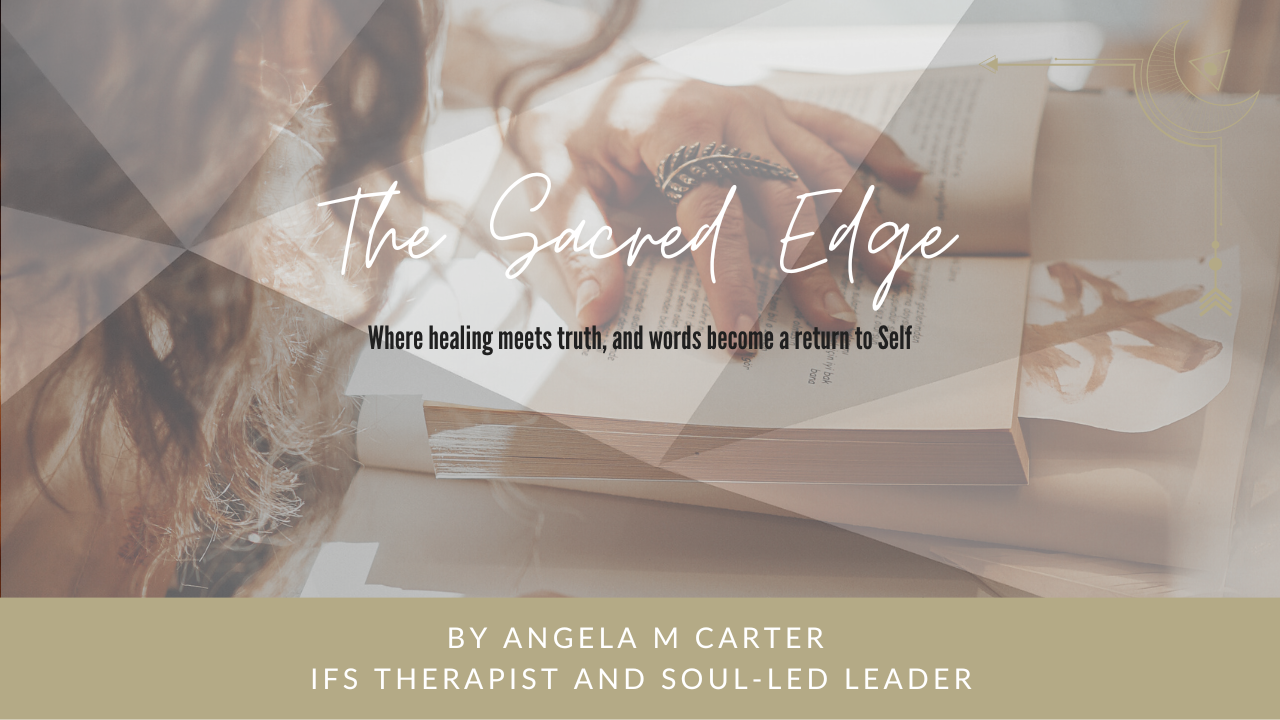Trauma, Parts and The Self
May 13, 2025
You Are Not Broken: The Truth About Trauma, Parts Work and Self-Trust
There is a moment in almost every healing journey where someone sits in front of me, eyes lowered, voice soft, and says, “I feel broken.” It is not said dramatically. It is not performative. It is a whisper from a weary heart that has carried too much for too long. And it is never true.
What I want you to know is this: you are not broken. Not now, not ever. What you are is human, and what you carry are the natural responses of a system that has tried to survive, sometimes in silence, sometimes in chaos, always in the only way it knew how.
The Myth of Brokenness
So many of us move through life believing that our symptoms define us. Anxiety means we are too much. Depression means we are not enough. Addiction, burnout, numbing, over-giving, these are often seen as evidence that we are failing at life. But through the lens of parts work and trauma-informed therapy, we see something very different.
What we call symptoms are often adaptations. They are responses shaped by early experiences, environments that were unsafe, or roles we had to adopt too soon. These responses live on inside us as “parts”, protective aspects of the self that developed to help us function, be loved, avoid harm, or feel some sense of control. These parts are not flaws. They are evidence of strength.
Understanding Parts Work
Parts work is based on a very simple and profound truth: the human mind is not singular. We are made up of many parts, each with their own emotions, beliefs, and strategies. This is not a disorder. It is how the human psyche functions.
Some parts push us to succeed, to perform, to care for others at our own expense. Other parts distract, numb, or withdraw. And some carry deep pain, often from childhood, holding wounds that were never tended to. When we judge these parts or try to silence them, they do not disappear. They go underground and shape our behaviour from the shadows.
Healing does not come from fixing these parts. Healing comes from listening to them.
Trauma Is Not What Happened, It’s What Happened Inside You
Trauma is often misunderstood. It is not defined by the event itself, but by the imprint it leaves on the body, mind, and nervous system. It is the feeling of being overwhelmed and alone in your pain. It is the disconnection from your Self that follows.
What trauma steals is trust, not just trust in others, but trust in your own instincts, body, and inner wisdom. It replaces self-trust with hypervigilance. It replaces ease with exhaustion.
Parts work gently restores what trauma tried to take. It does not demand that you revisit everything that hurt. It invites you to be with the parts that are still carrying those hurts, and to do so with compassion, curiosity, and care.
Self-Trust Is Not a Trait, It’s a Relationship
Many people believe that self-trust is something you either have or do not have. But self-trust is not a fixed quality. It is a relationship you build over time, between your Self and your parts.
As a therapist, I have watched people learn to trust themselves again, not by erasing doubt, but by turning towards the parts that hold it. They learn to meet their inner critic with compassion. They learn to comfort their anxious parts rather than trying to outthink them. They learn that their body’s signals are not betrayals, but messages.
And most importantly, they learn that their pain never made them broken. It simply made them human.
You Are Already Whole
This is not a journey of becoming someone else. It is a journey of remembering who you are beneath the protective layers and pain.
You are not broken. You are beautifully complex. You have inner resources that are untouched by trauma, even if you cannot feel them right now. They are not gone. They are just waiting for space to return.
There is no quick fix. But there is a way home, through gentle listening, deep presence, and learning to lead your life from the place in you that is wise, calm, and connected.
That place is there.
And it never left you.
Try This: A Self-Trust Reflection
Find a quiet space. Place a hand on your heart. Breathe gently. Ask inside, “Is there a part of me that feels unheard?” Wait. Let the answer come, even if it is subtle. You do not need to do anything with the answer. Just acknowledge it. Let that part know, I see you. I am listening. We can go slowly.
This is how it begins. Not with a grand solution, but with a quiet return.
In abundant love and kindness for all gentle souls,
Angela xox
Stay connected with news and updates!
Join our mailing list to receive the latest news and updates from our team.
Don't worry, your information will not be shared.
We hate SPAM. We will never sell your information, for any reason.

